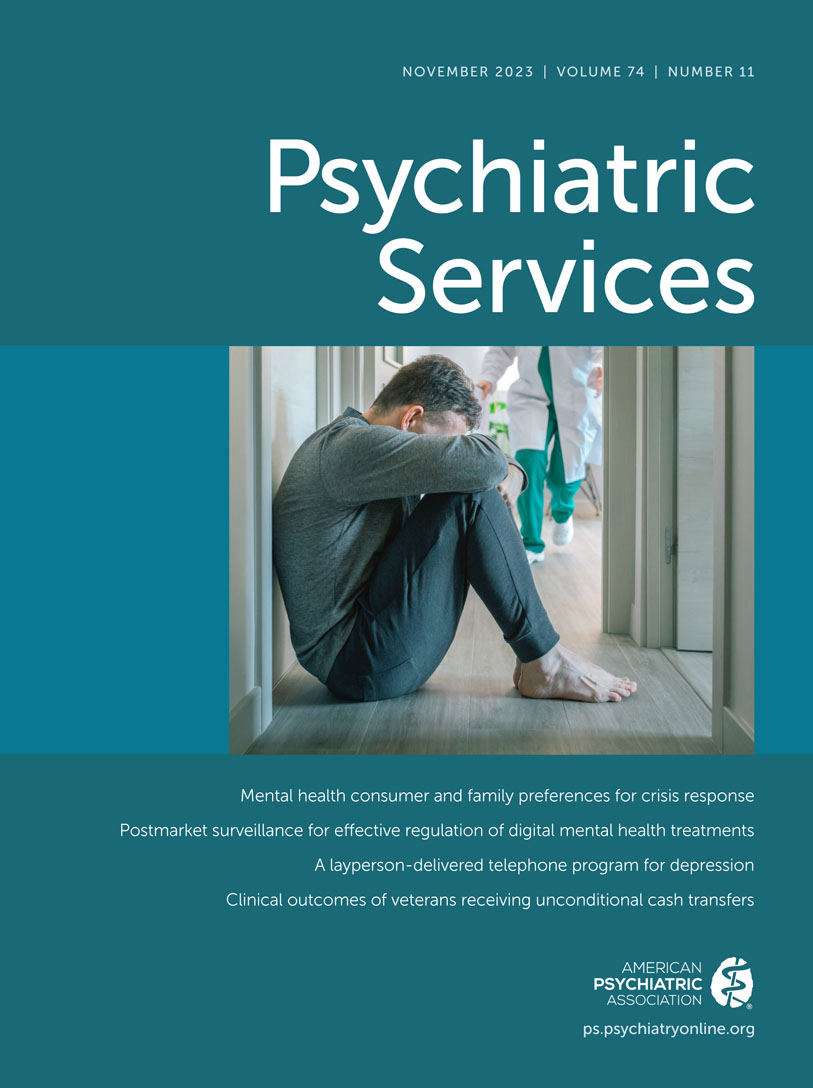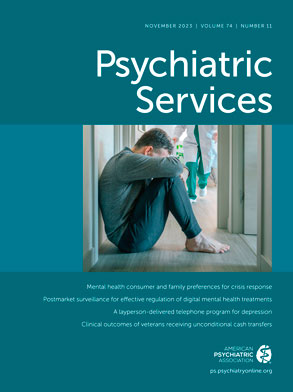TO THE EDITOR: We are writing to comment on the U.S. study reported in
Psychiatric Services (
1) that investigated the effectiveness of smoking cessation interventions for individuals with mental disorders. These findings highlight the need for greater access to and utilization of evidence-based smoking cessation treatments, especially among those with mental illness worldwide. Using the Medical Expenditure Panel Survey data (2005–2019), White et al. (
1) found that a large majority of smokers with mental illness did not receive any of the three recommended smoking cessation medications (i.e., 97.1% did not receive varenicline, 98.9% did not receive nicotine replacement therapy, and 91.6% did not receive bupropion). Providers, including general internists and psychiatrists, identified barriers to providing cessation treatment, including the perception of smoking as a coping mechanism and lack of insurance coverage or contraindications for people with mental illness.
This lack of smoking cessation treatment for people with mental illness is an issue in many countries. The high rates of smoking among patients with mental illness also represent a significant public health concern in France (
2). We conducted a pilot study (
3) that found that French psychiatric patients face similar barriers to smoking cessation, including high levels of nicotine dependence and a lack of access to evidence-based smoking cessation treatments, such as White et al. (
1) found. In addition, psychiatric patients are often overlooked in smoking cessation interventions, further exacerbating their health issues (i.e., higher rates of cancer and cardiovascular events than found in the general population).
We would like to draw attention to the AWARE research project currently taking place in France. AWARE aims to increase awareness among mental and addiction health care professionals in France about the need for antismoking interventions tailored to the unique needs of mental health patients. AWARE is a controlled before-and-after study that includes educational interventions through e-mail, e-newsletters, recovery materials, existing media, and educational resources. The expected outcomes of the AWARE France project are to increase the number of professionals offering smoking cessation treatment and implementing smoking bans and to assess smoking behaviors in their care units.
The AWARE France project has been implemented during mental health conferences and at mental and addiction health care centers. The project also aims to validate the construct of French versions of two scales developed in the United States, the Tobacco Treatment Commitment Scale (
4) and the Index of Tobacco Treatment Quality (
4), which will be used to evaluate the outcomes of AWARE France. These scales have already been validated in Portuguese (
5).
We hypothesize that AWARE France will be more cost-effective from a provider perspective despite being costlier upfront. Although the project may require some upfront costs, such as the expenses of the educational interventions, it is expected to result in long-term cost savings for health care providers. Educational programs like AWARE can revolutionize the way care is implemented for generations.
In conclusion, smoking among mental health patients is a significant public health concern. White et al.’s study highlights the importance of implementing smoking cessation interventions tailored to the unique needs of psychiatric patients, an issue also faced in France. The AWARE France project is a step toward addressing this health disparity by increasing among mental and addiction health care professionals awareness of and commitment to tobacco dependence treatment.

